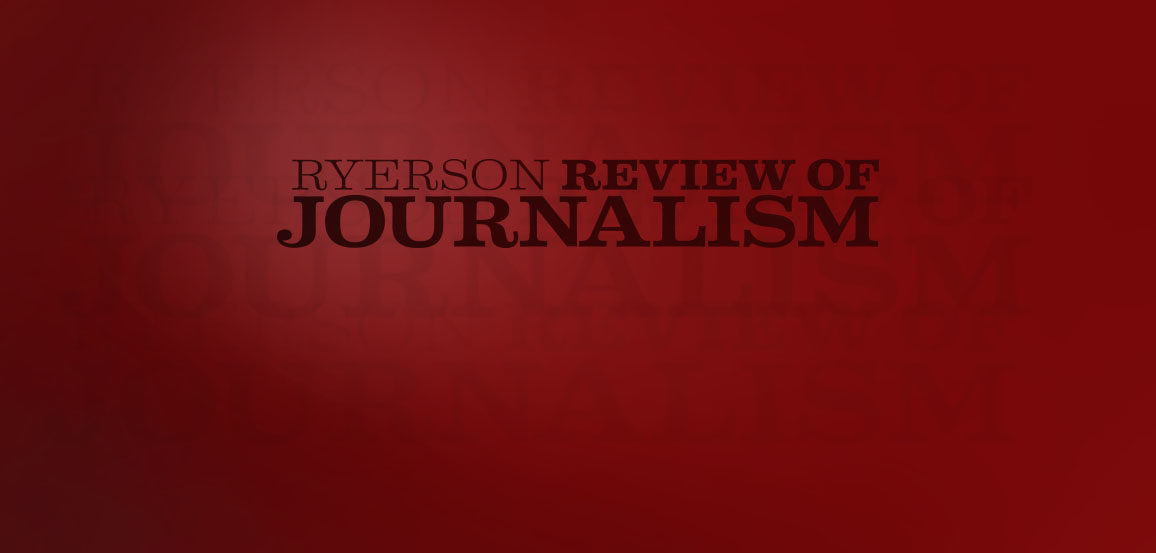I have never won a national journalism award. Which is okay, because I’m not a real journalist. But when I become a real journalist, it still won’t matter. Sure I’ll apply for the awards, but I’ll say it’s an honour just to be nominated. And if I win, I’ll frame my award and display it over my desk at the office, but only because there’s no room for it in my closet at home. It’s really not a big deal. Awards aren’t everything. I don’t care.
Except that deep down inside, I do. Deep down inside I yearn for validation from the volunteer judges’ panel made up of three of my peers. I envision my name on some wire copy announcing that my newspaper received more National Newspaper Awards (NNA) than the competition. I dream of a starburst on a magazine cover boasting of my National Magazine Award (NMA). I practice my acceptance speech for the next Canadian Association of Journalists’ convention.
Which is why the following document bothered me. It’s a photocopy of the judges’ citations for last year’s NNA for Column Writing. It’s in point form. It goes like this:
“Winner – Josh Freed. Second – Rosie DiManno. Third – Johanna Schneller.” Under each of their names, respectively, is: “Excellent work”; “Great writing”; and “Good writing.” There are other points too, like: “Humorous”; “Toronto-centric”; and “Very witty.” Twenty-three points in all.
So now, here I am, finally questioning the esteem I’ve always placed on journalism awards. Wondering how a profession that so values objectivity and attribution can be so subjective and vague when evaluating itself. And I don’t like this questioning because it makes me question other things. Like whether journalism awards are actually awarded for journalism, and not for the writer’s gender, language, location or subject matter – all issues that have to be taken into account in the interest of balance. Award organizers can assure me that writing is what is being judged first and foremost, but who’s to know what a judge is thinking when she labels something “Excellent work” and thus gives it a prize?
Maybe I’m not being fair. In other categories and other years, I have come across other judges’ citations that are far more detailed and thoughtfully explained. The problem is that there is no consistency. “If you can read, you can judge,” says Bryan Cantley, who organizes the NNA on behalf of the Canadian Newspaper Association. And Cantley admits that different judges will put different amounts of effort into the task.
And maybe that’s just the NNAs. Each award program uses a different judging method with varying degrees of discretion given to individual judges. Other judges might be more accountable for the way they reach their decisions. The problem is that I can never know; because the other two award programs don’t have judges’ citations on file.
What I do know is that none of this matters and awards aren’t everything. Even Cantley agrees. In terms of career advancement, at least, he believes our national journalism awards are “not very important.” They’re not the Pulitzer Prizes. This is also what I hear from Ellen Vanstone, the recipient of last year’s NMA forHumour Writing. “I think [my award] has been more useful to my ego than anything else,” she admits. “It didn’t bring me any more money and it didn’t bring me any more work.”
But really, who needs money and work when you have a shiny plaque with your name on it? Deep down inside, that’s all we really want. Even if we know awards are not an exact science and winning will not actually solve all the other problems in our lives. Even if we know that the very act of our winning could be nothing more than a statistical fluke or the byproduct of a judge’s particularly good day.
“If we were giving away $10, I think people would still participate,” says Pat Kendall, executive director of the NMAs. Because it’s not about the money, it’s about the prestige. And it’s an honour just to be nominated.
About the author
Julia Williams was the Editor for the Summer 2004 issue of the Ryerson Review of Journalism.
